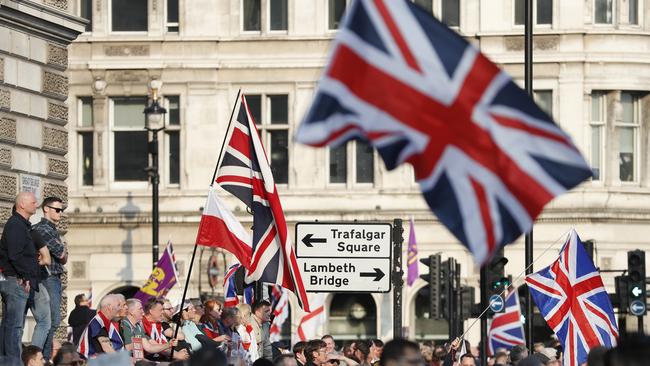Three days that will decide Britain’s future
Here are the key votes to watch out for as Theresa May battles to get her version of Brexit through a divided parliament.

Britain’s future could be decided this week as Theresa May and a growing band of crossbench MPs battle it out to see which version of Brexit secures the most support in parliament.
MONDAY
Backbench MPs led by the Tory grandee Sir Oliver Letwin will again oversee a series of votes on alternatives to May’s deal. There are already eight options for MPs to choose from, including a customs union, a “Norway-style” single market deal, a confirmatory referendum, and no deal.
It is understood that John Bercow, the Speaker, will select just three or four options to be voted on. If one of the proposals were to win a majority — and the customs union was defeated by only eight votes last week — the same MPs will return on Wednesday to pass legislation to force the prime minister to negotiate this alternative.
The cabinet is split over a customs union, which contradicts the party manifesto. Although David Lidington, May’s de facto deputy, Amber Rudd, the work and pensions secretary, and Greg Clark, the business secretary, are thought to be willing to support it, any move towards a softer Brexit is likely to trigger resignations from leave-supporting cabinet ministers, including Andrea Leadsom, the Commons leader, and Liam Fox, the international trade secretary. It would also split the party.
TUESDAY
Although unconfirmed, it is understood that the prime minister may attempt to bring back her deal to parliament for a fourth time. Bercow has previously ruled that she cannot bring back a further vote without changes to the motion.
One idea being floated is that she could bring forward the Withdrawal Agreement Bill for its second reading rather than having another meaningful vote. However, there are fears that seeing the backstop legislation — to avoid a hard border in Northern Ireland — in black and white will spook members of the Eurosceptic European Research Group, who grudgingly backed May’s deal on Friday.
Another idea would be to hold a run-off between May’s deal and the frontrunner from the indicative votes process.
Despite the embattled prime minister’s dramatic promise last Wednesday that she would hand over the keys to No 10 if her Tory colleagues backed the withdrawal agreement, parliament voted against it on Friday, by 344 to 286, a loss of 58.
It is thought Downing Street will try to focus the minds of rebel MPs on Tuesday by tabling the statutory instrument that will reinstate the upcoming European parliament elections. If May is defeated again, it is likely she will make the decision on Tuesday night (early Wednesday morning in Australia) on whether to call a general election or risk being forced by parliament to negotiate a softer Brexit.
WEDNESDAY
May could call a general election, if she decides this is the best way of solving the current Brexit impasse before backbench MPs led by Letwin try to pass legislation that would force her to negotiate an alternative.
If she does not call an election, May could quit, or risk splitting the Conservative Party by agreeing to return to Brussels to hammer out a deal.
The Sunday Times


